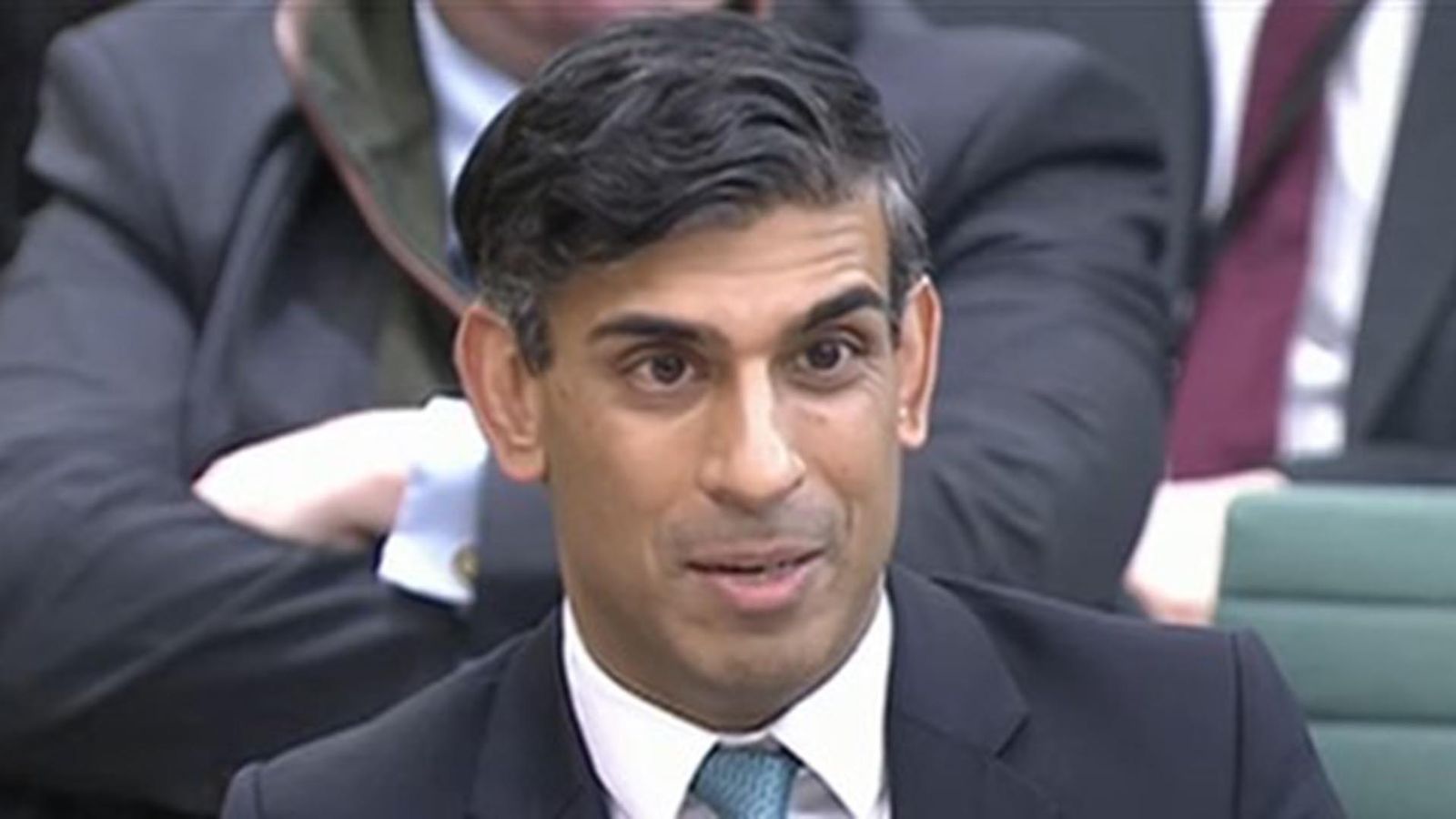Rishi Sunak has been branded “weak” by his own MPs after rowing back on plans to make it harder to bring family members to the UK.
The threshold for a family visa was due to rise from £18,600 to £38,700 next spring in a bid to reduce legal migration, which hit a record high this year.
But on Thursday the government quietly watered down the heavily criticised measure, saying the threshold would first be raised to £29,000 in the spring, and then increased in “incremental stages” – though no timetable was set for when the top figure will apply.
A family visa allows British citizens to bring foreign family members, such as a partner or child, to the UK if they earn enough money.
The climbdown has angered hardline Conservative MPs in favour of tighter migration controls.
Be the first to get Breaking News
Install the Sky News app for free
David Jones, deputy chairman of the right-wing European Research Group, told the PA news agency on Friday: “The latest net migration figures very starkly showed the extent of the crisis we face. Increasing the threshold was absolutely necessary to address that crisis.
“The government should have stuck to its guns. Yesterday’s decision was a regrettable sign of weakness, made worse by the fact that parliament was not sitting and therefore was unable to interrogate ministers on the reasons for the decision.”
Jonathan Gullis, a Conservative former minister, wrote on X: “This decision is deeply disappointing and undermines our efforts.”
Robert Jenrick, who quit over the Rwanda plan, was also among the critics, with a source close to him saying: “The whole package needs to be implemented now, not long-grassed to the spring or watered down. More measures are needed, not less.”
Please use Chrome browser for a more accessible video player
Read More:
UK citizens ‘will have fewer rights than migrants’ under new family visa rules
Cleverly’s climbdown over family visas looks like a hasty, panic retreat
Former minister Sir John Hayes added that individuals and employers needed “certainty” over the phased implementation and called on the government to set a timeline of when the £38,700 threshold will apply.
He told BBC Radio 4’s Today programme: “What they haven’t said is when…that needs to be done very quickly because you need certainty, you need certainty for individuals, certainty for employers.
“And if we’re going to £38,700, which seems to be very sensible, then that needs to be done with speed so that people know where they stand.”
The increase in the family visa threshold was announced in early December as part of a package of measures to curb legal migration.
It came after the Office for National Statistics (ONS) revised its net migration figure – the difference between the number of people arriving in the country and leaving – to put 2022 at a record of 745,000.
But the move to more than double the salary a British citizen needs to earn in order to bring someone over to the UK was criticised for threatening to tear families apart.
Couples told Sky News the prospect of the original increase – to a figure well above the national median average salary of £34,963 – left them “utterly devastated” and faced with having to separate.
The revised policy, announced in answer to a written parliamentary question by Home Office minister Lord Sharpe of Epsom, said the earnings threshold would be “increased in incremental stages to give predictability”.
However, no date for when the threshold would rise beyond £29,000 was given.
In a letter to MPs on Thursday, Home Office minister Tom Pursglove simply said the changes would be introduced in a “stepped fashion throughout early 2024” and it strikes the right balance “between the immediate need to start reducing net migration and giving those affected adequate time to prepare for upcoming changes”.
Reducing net migration was a key pledge in the Conservatives’ 2019 manifesto.
Opposition parties said the policy was in “chaos”.
Shadow home secretary Yvette Cooper said ministers “failed to consult anyone on their new proposals and took no account of the impact of steep spousal visa changes on families next year, so it’s no surprise they are now rowing back in a rush.”
Click to subscribe to the Sky News Daily wherever you get your podcasts
The climbdown comes as the Rwanda policy to address small boat crossings also ended the year clouded in disarray.
Mr Cleverly told LBC on Friday that planes have not yet been found to take part in the government’s flagship policy to deport asylum seekers to east Africa, after reports that firms have so far refused over fears of reputational damage.
“We are not at the stage yet where we can have those commercial negotiations,” he said.
He went on to say that the government will “fight tooth and nail against any parliamentarians who try to kill” off the policy.
Although Mr Sunak saw off a rebellion over the plan earlier this month, further opposition is expected as it passes through the Commons in the new year, with right-wing Tories demanding the bill goes further and those in the moderate wing warning against any such measures that break international obligations.







